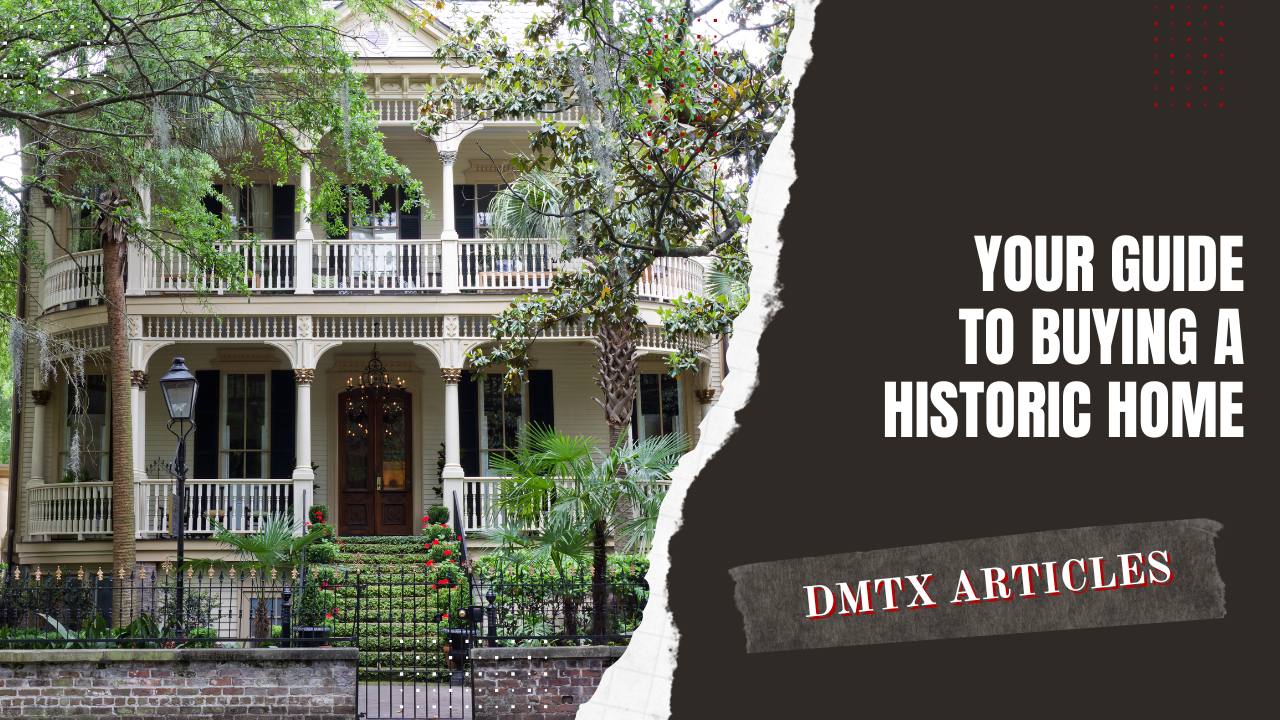Buying a historic home is like owning a piece of history. These charming homes have unique stories, beautiful architecture, and a sense of character that you won’t find in modern houses. If you’re thinking about buying a historic home, there are some important things to consider. This guide will help you understand what makes a home historic, the benefits and challenges of owning one, and tips for making the process easier.
What Makes a Home Historic?
A home is considered historic if it’s at least 50 years old and has special architectural, cultural, or historical significance. These homes often reflect the styles and traditions of the time when they were built. Living in a historic home is like having a direct connection to the past.
Benefits of Owning a Historic Home
1. Unique Character and Charm
Historic homes are full of unique details and charm. From intricate woodwork to beautiful stained glass windows, these homes have special features that make them stand out. Each historic home has its own story and personality, making it a one-of-a-kind place to live.
2. Quality Construction
Many historic homes were built with high-quality materials and excellent craftsmanship. These homes have stood the test of time and are often more durable than newer homes. The solid construction and attention to detail make historic homes a great investment.
3. Sense of Community
Historic neighborhoods often have a strong sense of community. Neighbors take pride in their homes and work together to preserve the area’s history and charm. Living in a historic neighborhood means you’re part of a close-knit community that values its heritage.
4. Increased Property Value
Historic homes can increase in value over time, especially if they are well-maintained. The unique character and historical significance of these homes make them desirable to buyers, which can lead to higher property values.
Challenges of Owning a Historic Home
1. Maintenance and Repairs
Historic homes may require more maintenance and repairs than newer homes. It’s important to keep up with regular upkeep to preserve the home’s character and value. This can include fixing old plumbing, repairing roofs, and maintaining wooden structures.
2. Renovation Rules
If you want to make changes to a historic home, you might need to follow specific rules and guidelines. Historic preservation boards or commissions often have regulations to ensure that renovations fit with the home’s historic character. It’s important to check with local authorities before starting any renovations.
3. Higher Costs
Maintaining and renovating a historic home can sometimes be more expensive than with newer homes. The special materials and craftsmanship needed to preserve the home’s character can add to the costs. However, many people find that the beauty and uniqueness of a historic home are worth the extra expense.
Tips for Buying a Historic Home
1. Do Your Research
Before buying a historic home, research the home’s history and the neighborhood. Learn about the architectural style and any previous owners. This will help you understand the home’s value and significance.
2. Get a Thorough Inspection
Have the home inspected by a professional who specializes in historic homes. They can identify any potential issues and help you understand what maintenance might be needed. This will give you a clear picture of the home’s condition before you buy.
3. Understand the Rules
Check with local historic preservation boards or commissions to understand any rules or guidelines for renovating or maintaining the home. This will help you avoid any surprises down the road.
4. Budget for Maintenance
Set aside a budget for ongoing maintenance and repairs. This will help you keep the home in good condition and preserve its historic charm.
5. Join the Community
Get involved in local historic preservation groups or neighborhood associations. These groups can offer support, advice, and resources for maintaining and preserving your historic home. They can also help you connect with other historic homeowners who share your passion.
Conclusion
Buying a historic home is a rewarding experience that comes with unique benefits and challenges. The charm, character, and quality construction of these homes make them a special place to live. By doing your research, understanding the rules, and budgeting for maintenance, you can enjoy the many rewards of owning a historic home. So, if you’re looking for a home with a story to tell, consider exploring the wonderful world of historic homes. You might just find the perfect place to call your own!


